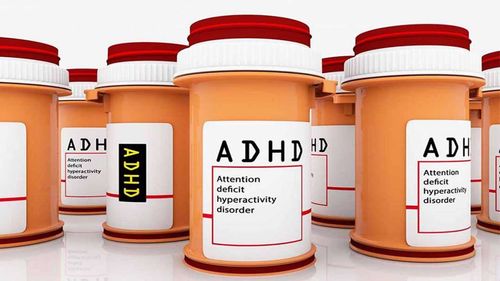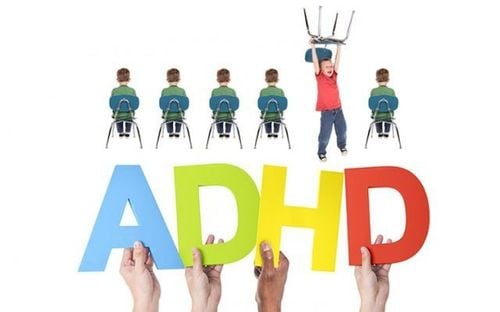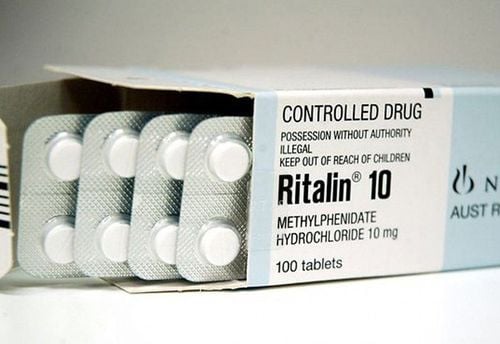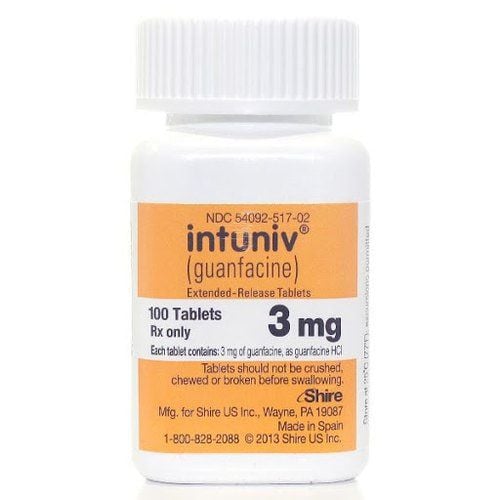This is an automatically translated article.
Amphetamine is a central nervous system stimulant that affects chemicals in the brain and nerves that contribute to hyperactivity and impulse control. Amphetamine is used to treat attention deficit hyperactivity disorder (ADHD). In this article, we will provide useful information for you to better understand the uses, indications and precautions when using Amphetamine Sulfate.
1. What is Amphetamine Sulfate?
This is a medication used to treat attention deficit hyperactivity disorder - ADHD. It works by changing the amount of certain natural substances in the brain. Amphetamine belongs to a group of drugs known as stimulants. Medicines can help you increase your attention span, focus on an activity, and manage behavioral problems. It can also help you organize your work and improve your listening skills.
2. Uses of Amphetamine Sulfate
This medication is also used to treat a certain sleep disorder to keep you awake during the day. It should not be used to treat fatigue or trouble sleeping in people who do not have a sleep disorder.
Amphetamine can also be used in conjunction with a reduced-calorie diet prescribed by a doctor to help overweight or obese people lose significant weight. It should only be used for a short time (a few weeks) in people who have not lost enough weight with other treatments (such as diet, other medications, group programs). Amphetamine works by reducing your appetite.

Thuốc cũng được sử dụng để điều trị một chứng rối loạn giấc ngủ nhất định để giúp bạn tỉnh táo vào ban ngày.
3. Dosage
Medicines used according to the prescription and supervision of the doctor.
3.1. Adults
Usual Adult Dose for Narcolepsy:
5 - 60 mg daily in divided doses.
The first dose should be given upon awakening; additional doses should be given at intervals of 4 to 6 hours; Dosing should be avoided in the late evening because it causes insomnia.
The dose should be individualized based on the patient's response; Reduce dose if unpleasant adverse reactions occur (eg, insomnia, anorexia).
Usual Adult Dose for Obesity:
5 to 10 mg orally 30 to 60 minutes before meals.
Maximum dose: 30 mg per day.
Amphetamines are used to suppress appetite in weight loss; Potential risks should be weighed against limited usefulness. Amphetamine should be used at the lowest effective dose and dosage should be adjusted individually; Dosing should be avoided in the late evening because it causes insomnia. Usual Adult Dose for Attention Deficit Sleep Disorder:
12.5 mg orally once daily in the morning.
Initial dose: 2.5 or 5 mg orally once a day in the morning.
Increase increments of 2.5 to 10 mg per day every 4 to 7 days until optimal response is achieved.
Maximum dose: 20 mg orally per day.
Amphetamine should be administered at the lowest effective dose and dosage should be individually adjusted; Dosing should be avoided in the late evening because it causes insomnia.

Amphetamines có công dụng hạn chế sự thèm ăn trong việc giảm cân.
3.2. Children
Usual Pediatric Dose for Narcolepsy:
Ages 6 to 11 Years: Initial dose: 5 mg orally daily in divided doses.
The daily maintenance dose may be increased to 5 mg at weekly intervals until an optimal response is achieved.
12 years and older : Initial dose: 5-10 mg orally per day in divided doses.
Daily maintenance dose: may be increased within 5 or 10 mg at weekly intervals until an optimal response is obtained.
Maximum dose: 60 mg per day.
Attention:
The first dose should be given upon waking; additional doses should be given at intervals of 4 to 6 hours; Dosing should be avoided in the late evening because it causes insomnia. The dose should be individualized based on the patient's response; Reduce dose if unpleasant adverse reactions occur (eg, insomnia, anorexia). Epilepsy rarely occurs in children under 12 years of age. Usual Pediatric Dose for Obesity:
Age 12 years and older :
Initial dose: 5mg orally 30 to 60 minutes before each meal.
Maximum dose: 30 mg orally per day in divided doses .
Comment:
Amphetamines have limited use in weight loss; Potential risks should be weighed against limited usefulness. Amphetamine should be used at the lowest effective dose and dosage should be adjusted individually; Dosing should be avoided in the late evening because it causes insomnia. Usual Pediatric Dose for Attention Deficit Sleep Disorder:
3 to 5 years: Initial dose: 2.5 mg orally once a day; Adjust the daily dose in increments of 2.5 mg at weekly intervals until an optimal response is achieved.
6 years and older: Initial dose: 5mg orally 1 or 2 times a day; Adjust the daily dose in increments of 2.5 mg at weekly intervals until an optimal response is achieved.
Maximum dose: 40 mg / day; only in rare cases is it necessary to exceed this dose.
Note:
ODTs and oral suspensions both contain immediate and extended release ingredients. A holistic treatment program often includes other remedial measures (eg, psychological, educational, and social). Amphetamine should be administered at the lowest effective dose and dosage should be individually adjusted; Dosing should be avoided in the late evening because it causes insomnia. Use this medicine regularly to get the most benefit from it. To help you remember, take it at the same time each day. Do not take this medicine late at night as it may make it difficult for you to sleep. If you suddenly stop using this medicine, you may have withdrawal symptoms (such as severe fatigue, sleep problems, mental/mood changes such as depression). To work around this, your doctor may reduce your dose slowly. The chance of a relapse is higher if you have been using amphetamines for a long time or in high doses. Although it works for many people, it can sometimes be addictive. The risk may be higher if you have a stimulant use disorder (such as drug/alcohol abuse or addiction). Use this medicine exactly as prescribed by your doctor.

Nên tránh dùng liều vào buổi tối muộn vì gây mất ngủ.
4. Side effects
May occur nausea, upset stomach, diarrhea, bladder pain, cloudy urine, burning or painful urination, dry mouth, headache, nervousness, dizziness, loss of appetite, drop weight, irritability or restlessness. Medicines can increase your blood pressure, be sure to check your blood pressure regularly while taking this medicine. Less common: chills, cough, fever, hoarseness. Contact your doctor as soon as you have the following symptoms :
Signs of heart problems - chest pain, trouble breathing, feeling like you might pass out; signs of a mental disorder - hallucinations (seeing or hearing things that are not real), new behavior problems, aggression, hostility, paranoia; signs of circulation problems--numbness, pain, cold feeling, unexplained sores, or skin color changes (pale, red, or blue) in your fingers or toes; Generalized convulsions or muscle twitches; Change in your vision. Get medical help right away if you experience the following serotonin symptoms: agitation, hallucinations, fever, sweating, tremors, rapid heartbeat, muscle stiffness, seizures, loss of coordination, nausea, vomiting or diarrhea.
5. Notes when taking Amphetamine Sulfate drugs
5.1. Drug interactions
Drug interactions can change the way a drug works or increase the risk of serious side effects.
You should not use amphetamines if you are allergic to any stimulant drugs or if you have:
Metabolic cardiovascular disease or heart defects (tachycardia, coronary artery disease, heart failure, myopathy). Heart disease Glaucoma Psychiatric status, anxiety, stress, agitation Personal/family history of bipolar disorder, depression,... Stroke Hyperthyroidism Moderate to severe high blood pressure Excess thyroid gland Severe anxiety, stress or agitation (stimulants can make these symptoms worse) History of drug or alcohol abuse Do not use use amphetamine if you have used an MAO inhibitor in the past 14 days Dangerous drug interactions can occur MAO inhibitors include isocarboxazid, linezolid, methylene blue injection, phenelzine, rasagiline, selegiline, tranylcypromine and others other medicines
Some products have ingredients that may increase your heart rate or blood pressure Tell your doctor which products you are taking and ask how to use them safely (especially cough and cold products, diet aids, or NSAIDs like ibuprofen/naproxen).

Một số sản phẩm có các thành phần có thể làm tăng nhịp tim hoặc huyết áp của bạn.
5.2. Notes when using the drug
This medicine may make you dizzy. Do not drive, use machinery, or do anything that requires alertness until you can do it safely. Limit alcoholic beverages. Children may be more sensitive to the side effects of this medicine, especially weight loss. This medicine may slow a child's growth. During pregnancy, this medicine should be used only when clearly needed. Discuss the risks and benefits with your doctor. Infants born to mothers who are dependent on this drug may be born too early (preterm) and have low birth weight. Children may also have withdrawal symptoms. Tell your doctor right away if you notice unusual mood swings, agitation or fatigue in your newborn. This medicine passes into breast milk and may have undesirable effects on a newborn baby. Therefore, breast-feeding while using this medicine is not recommended. Consult your doctor before breastfeeding.
5.3. Preserve
Store at room temperature, away from light and moisture. Do not store in the bathroom. Keep all medications away from children and pets.
Do not use the medicine when it has expired or shows signs of deterioration.
5.4. Missed dose
If you miss a dose, take it as soon as you remember. If it is late in the afternoon or near the time of your next dose, skip the missed dose and take it as usual. Do not double the dose as it will cause many unwanted side effects.
Please dial HOTLINE for more information or register for an appointment HERE. Download MyVinmec app to make appointments faster and to manage your bookings easily.
Reference sources: webmd.com, drugs.com












